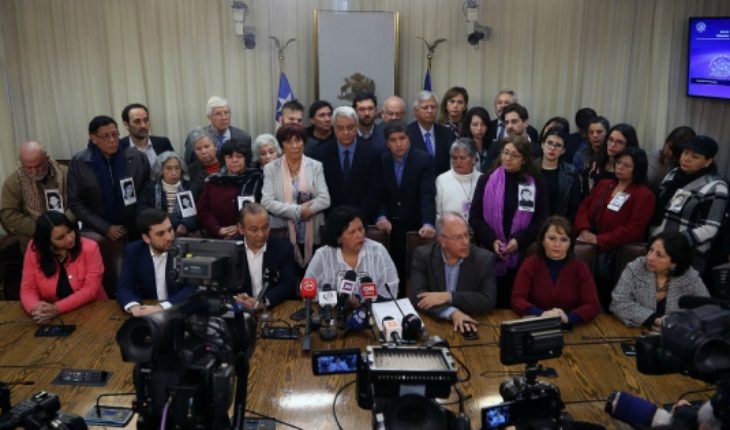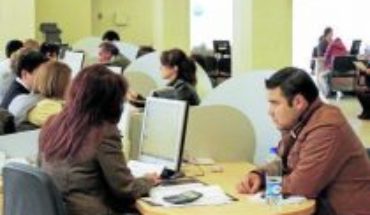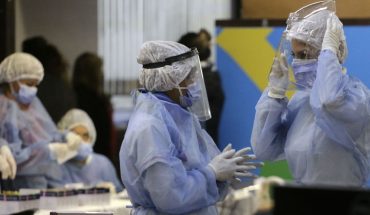this Thursday is “D-day” for the constitutional accusation in the camera of Deputies. During the morning, Commission analyzing the opponent libel against Ministers of the second Chamber of the Supreme Court, Hugo Dolmestch, Manuel Valderrama and Carlos Künsemüller, vote on the report which will be sent to the room, which is cited to 14:30 hours for to pronounce on the matter.
Five members of the Commission, Deputy Leonardo Soto (PS), responsible for analysing the constitutional accusation, agreed to meet at 10:30, to deliver its position in relation to the origin of the allegation, substantiate and argue the vote .
Then, the day room includes, in the first instance, prior discussion where those affected are exposed their arguments that the indictment does not comply with requirements pointing the Constitution politics. If this is rejected, the room will proceed to vote the arguments of the prosecution.
Ministers of the second Chamber of the Supreme Court, Hugo Dolmestch, Manuel Valderrama and Carlos Künsemüller, were indicted for “remarkable abandonment of duties”, due to the freedoms granted to 7 human rights violators.
The debate by the prosecution has been crossed by a strong lobby of the Supreme and the Government that has been questioned by opposition libel, and that included an unprecedented meeting in La Moneda between President Sebastián Piñera and the owner of the country’s highest court , Haroldo Brito. In addition, libel has unleashed a hard discussion among specialists with arguments for and against.
The future of the prosecution is uncertain, taking into account that in the same competition there is unanimity to support the libel. As revealed by a report by El Mostrador, in the former new majority point to the lack of “calculation and political deployment” of sponsors, and there is a risk of libel to run the same fate that took in June the constitutional accusation presented the opposition in with the Minister of health, Emilio Santelices, TRA and that fell in the previous question.
The accusation against the Supreme also left in evidence the lack of ad hoc legislation to establish the requirements that should be met those convicted of human rights violations. But this was partly troubleshooting with the approval by the Joint Commission – reactivated in the midst of this debate – a proposal for a parliamentary opposition that includes repentance and collaboration such as requirements to access this benefit in case of convicted of crimes against humanity.
What sets the rules of the rules of procedure of the Chamber of Deputies Chamber, in its articles 335 to 338 step establishes the procedure to be followed by a constitutional accusation.
* Article 335. Until the House of Commons starts the debate referred to in the following article, only the affected may raise, orally or in writing, the precondition that the accusation does not comply with the requirements which designates the Constitution politics. Deducted the prior question, the camera will solve it by a majority of the members present, after listening to the deputies members of the reporting Committee. If the camera acogiere the prior question, the indictment shall be deemed not filed. If you discard it, not the discussion about the unfairness of the indictment may be renewed and no one will insist on it.
* Article 336. Disposed of the question prior or if this has not been deduced, the room of the Chamber of deputies will proceed in the following way: 1. If the report of the Commission will recommend to approve the prosecution, will be the word Deputy that the majority of the Committee designated to hold it. Then be heard to the affected, if present, or will read the written defense that has been sent.
2. If the report of the Commission will recommend rejecting the accusation, the Word will be a Deputy who hold it and then you can reply the affected or, if it does not make it, a Deputy supporter it is disposed.
* Article 337. The affected person can rectify facts before the end of the debate. Same right will have the Deputy Commission informant, when it recommends hosting the accusation, and a Deputy who hold it, when it has been rejected by the Commission.
* Article 338. At the last session that hold the camera to learn of the indictment, its admissibility will be voted. This session may be lifted only if disposed of the charges or if it is accepted.
In the latter case, a Commission of three members shall be appointed so that you formalize it and proceed to the Senate. Approved the indictment, the Chamber of Deputies shall communicate this fact to the Senate and to the plaintiff within twenty-four hours of completed the session referred to in this article.
The accused shall be suspended in its functions in accordance with the provisions of article 52, final paragraph, of the Constitution policy, which will be communicated to the authority that it corresponds.
translated from Spanish: D-day for the constitutional accusation: this Thursday is voted in the Chamber of deputies
September 12, 2018 |





